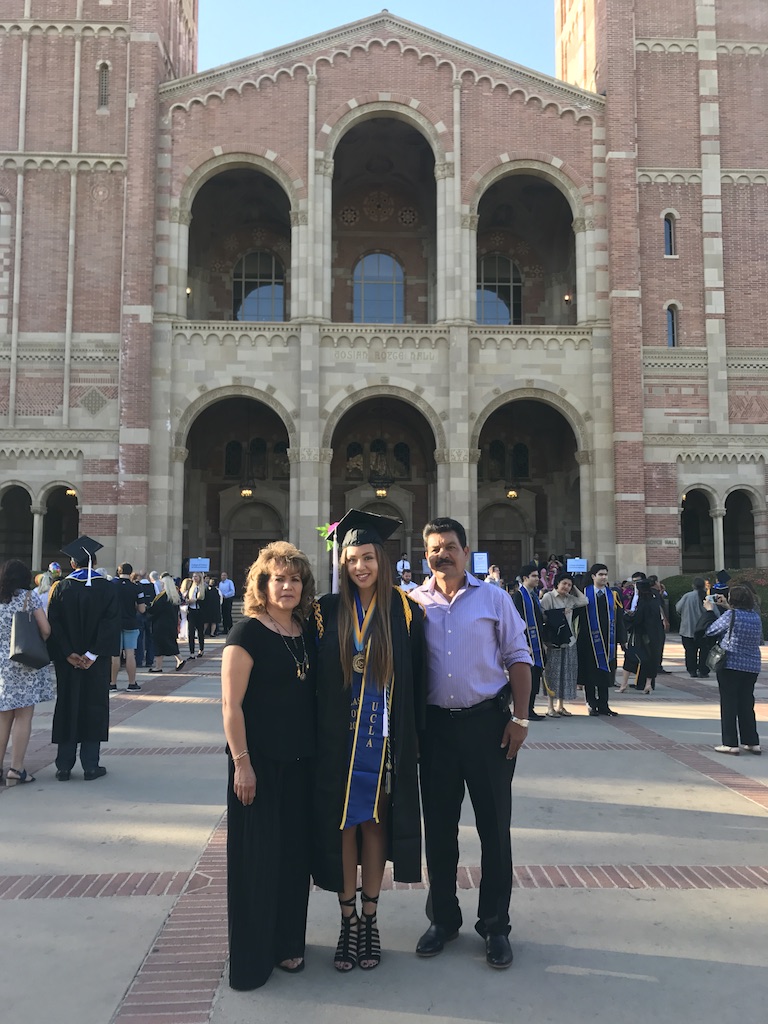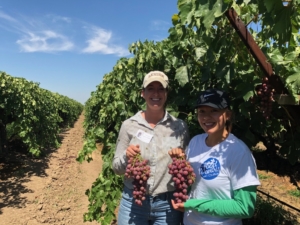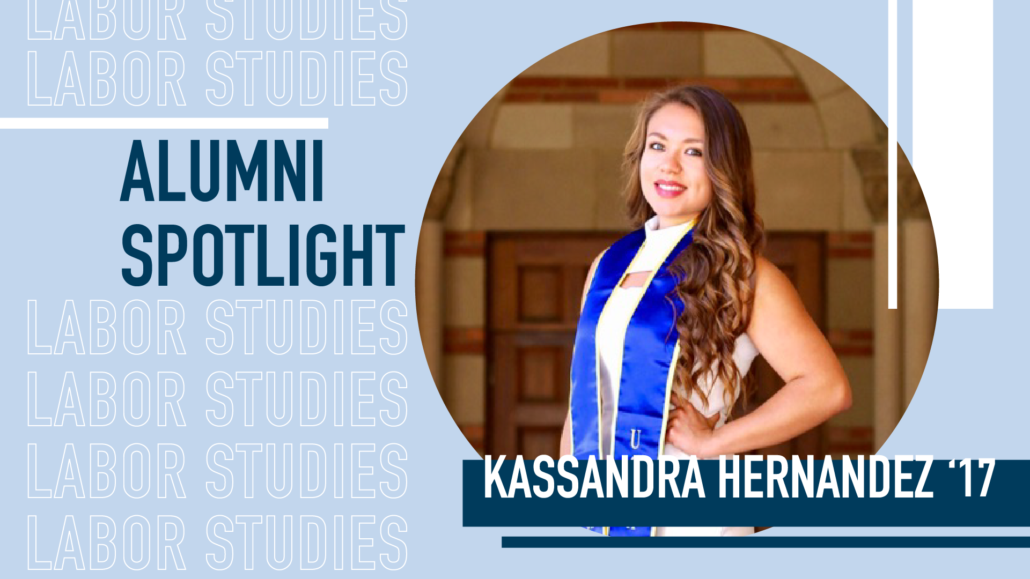Labor Studies Alumni Q&A: Kassandra Hernandez on Labor and Public Policy
Vanessa Codilla | January 10, 2020
Can you tell us about yourself?
My name Kassandra Hernandez. I am currently a second year master of public policy student at UCLA Luskin School of Public Affairs but I did my undergrad at UCLA as well. I majored in philosophy and minored in labor studies.
I am a daughter of immigrants. My mom was a domestic worker and my father currently still works in agriculture. I grew up in a vineyard in Malibu where he managed the entire property. From a young age I was involved in labor, not so much from the activist perspective, but I would go outside and see my own family tending to the land. Whether or not I recognized it when I was 5, that experience stayed with me. When I pursued higher education I loved philosophy, specifically ethics and thinking about how the world should be and not just how the world is, but I didn’t really get to apply it until I got to the labor studies minor.
I’m really passionate about combining the ethical portion of labor studies in application. I left philosophy behind and focused more on labor and how we can improve worker wellbeing.
Can you tell us more about your current research and why you chose this topic?
After I graduated I did AmeriCorps and moved to the California Central Valley. I was working on food security issues at the college level for CSU Bakersfield. It was a huge learning experience and the same issues of income inequality kept coming up, which relates back to what I learned in labor studies. I was exposed to the food policy council in Kern County and realized that we were pushing for policy reform but did not have the data and quantitative research methods to back it up. I decided to go back to school to focus on my quantitative training. Now I’m at Luskin learning more about statistics and economics behind the issues I care about.
What made you want to join the labor studies program?
The labor studies program was general and broad enough for me to have a little taste of all the topics I cared about. The diversity and flexibility that I got from the minor is why I ultimately chose it on top of being able to see myself in the topics I was actually learning about.
What about the minor had the most impact on you?
The minor was the first time I saw myself in a lot of these spaces. After I graduated, when I look at the classes that impacted me the most I think of my labor studies courses because they looked at real world issues in the people I could see myself in. I saw my family in all the worker populations I got to work with and that kept me going with a momentum and drive. My experience shaped my post-grad goals and decision to go back to school, too.

What was your favorite labor studies program?
The first time I saw myself as a researcher was in Professor Janna Shadduk-Hernandez’s course on Working Families and Educational Inequalities in LA County. One of my biggest critiques in higher education is that it’s easy to be detached, especially since we are in a well-off portion of LA. It was refreshing to see that there were voices that I could relate to and work I can do in the community that would also give me academic credit.
Were you involved in any activities on campus or in the community?
I was involved with the Day Laborer Project where we worked with Instituto de Educacion Popular del Sur de California (IDEPSCA). We went into the community to provide English lessons. However, it’s problematic to just go into a community and provide service, so we also used it as an opportunity to learn from day laborers. It was a mutually beneficial experience where we started the conversation talking about critical approaches to current events, as well as casual conversations in English to go over words that may come up in the job. It was more than going into the community to teach English; it was a space to have conversations and learn from each other.
What challenges have you faced while pursuing higher education and how are you able to persevere despite the challenges?
Being a first generation college student, a second generation immigrant, a Latina – all those labels that put you in the minority bucket – have been a challenge not so much because of the labels themselves but because of where we are at UCLA. I didn’t identify with a lot of my peers with different privileges and different starting points and that was the harder part. I couldn’t really turn to my parents for navigating the college experience and application processes or fellowship funding, but I did always have consistent emotional support, which comes from being all those labels and having family as your core. I never saw these labels as limitations but rather characteristics that I have. These have allowed me to define my passion because the work I care about and keep pushing for is the work I see my family and community and myself in.

Any advice for seniors preparing to graduate?
Start somewhere and you’ll go somewhere . A lot of times we get stuck with not knowing where to start, not knowing what job to apply for, or what kind of career to have. Start somewhere and you’ll end up learning and you’ll eventually get to where you need to be.
What are your next steps or career goals?
I want to pursue a PhD in Economics or Public Policy, so I need to go back and take a ton of different math classes. In my gap year I hope to do some research with Luskin faculty with a labor focus. Ideally, later on I’d also want to become a professor at a research institution. I recognize that a lot of why I’m here is not only because I’m passionate but also because professors were helpful and supportive, specifically in the labor studies program.
This interview has been edited and condensed for clarity.


